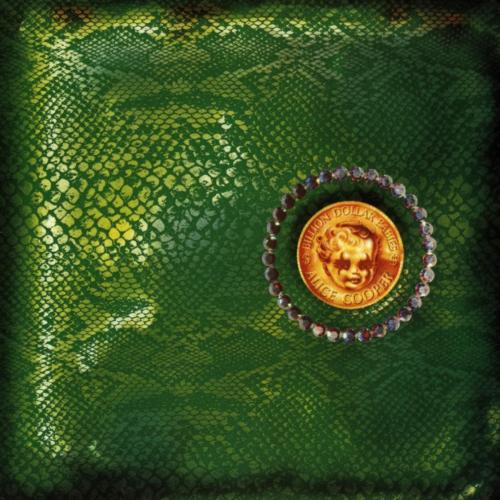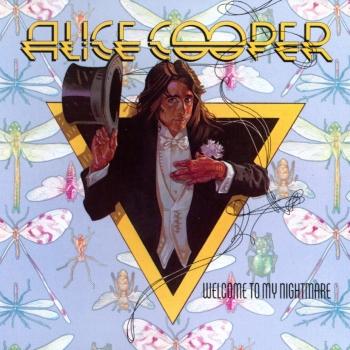
Billion Dollar Babies Alice Cooper
Album info
Album-Release:
1973
HRA-Release:
30.06.2012
Label: Warner Music Group
Genre: Rock
Subgenre: Classic Rock
Artist: Alice Cooper
Composer: Alice Cooper, Bob Ezrin
Album including Album cover
I`m sorry!
Dear HIGHRESAUDIO Visitor,
due to territorial constraints and also different releases dates in each country you currently can`t purchase this album. We are updating our release dates twice a week. So, please feel free to check from time-to-time, if the album is available for your country.
We suggest, that you bookmark the album and use our Short List function.
Thank you for your understanding and patience.
Yours sincerely, HIGHRESAUDIO
- 1 Hello Hooray 04:14
- 2 Raped And Freezin' 03:19
- 3 Elected 04:04
- 4 Billion Dollar Babies 03:42
- 5 Unfinished Sweet 06:19
- 6 No More Mr. Nice Guy 03:06
- 7 Generation Landslide 04:30
- 8 Sick Things 04:17
- 9 Mary Ann 02:20
- 10 I Love The Dead 05:07
Info for Billion Dollar Babies
Rock star opulence came to an explosive head in 1973 when Alice Cooper and company hit #1 on the U.S. and worldwide charts with Billion Dollar Babies, their sixth and most successful album. Produced by Bob Ezrin, it is also one of the best rock n roll records of all time, and the subsequent tour became their biggest rock production to date. Capitalizing on the albums themes of good-old decadence and horror, the show climaxed with a guillotine execution of Alice. The album and the tour catapulted the band into the worlds preeminent pied pipers of teenage trash culture.
Concerning Alice Cooper, it is by now axiomatic that any new album is intended only as the soundtrack of the latest group traveling extravaganza. But even considered as a soundtrack, Billion Dollar Babies seems an abortion. The extended numbers (ones around which the stage skits revolve) are the most abrasive. Rather than following Cream's formula of presenting a tight skeleton on vinyl that can be expanded at will onstage, the Cooper troupers insist upon acting this soundtrack concept out to the bitter end. So we get to hear large stretches of the band in total sonic disarray while dentists' drills roar ('Unfinished Sweet'), snakes hiss ('Sick Things') and guillotine blades drop ('I Love the Dead'). Zero to each song.
As expected, Billion Dollar Babies doesn't cut the mustard when viewed musically, either. 'Hello Hurray,' which opens the album and the current stage act, is a Broadway production number by Rolf Kempf (the play escapes me), once again underscoring the 'show' aspect of the Cooper experience. The adapted version gives an interesting view of the reluctant cynicism that's an unavoidable component of the rock star existence, but does precious little else. As on every other cut the band just never manages to mesh musically, and the final chorus merely bluffs its way around becoming the intended musical conjuration of the awesome instrumental power behind a rock singer.
'Elected' fails similarly, a victim of incredibly inept production. Alice builds the song's tone steadily throughout, then right at the top of the final chorus, just when you're expecting the thing to explode into a fist-hoisting anthem, the whole damn thing suddenly fizzles out. Guitars decelerate, horns recede ... it doesn't make any sense. For a group that's had such success with power-oriented songs in the past ('Under My Wheels,' 'School's Out,' 'I'm Eighteen'), the approach is as mysterious as it is absurd.
Alice himself is fond of saying that 'Raped And Freezin'' is 'a classic rock & roll song in the spirit of 'Brown Sugar.'' Believe it if you can, but Jagger and Co. would never be as unmelodic, as given to ridiculously arbitrary tempo changes, or as dependent upon sound effects to create moods as is ole A.C. There's something about tape-recorded bullfights that just doesn't fit in with rock & roll.
Donovan and Alice swap lines on the title cut, which is otherwise no different than the rest of the album — tedium ranging from boredom to humdrumity. But seeing as how that has also been a good description of Mr. Leitch's career, his efforts here make a certain bizarre sense, something I'm sure that only Alice Cooper's followers could fully appreciate.
While they're currently quite content to hide behind this 'entertainment' facade, I know damn well that these guys can be good musicians. They did a version of 'The Train Kept A-Rollin'' once during a sound check that might have blown the Yardbirds away! Maybe we'll get a taste of this later this year when guitarist Mike Bruce releases a solo album — could be nice. But as it is now, with each member totally willing to submerge his musical development within the group personality, we'll continue to see a dependence on cheap tricks and illusions of decadence instead of rock & roll. Personally, I prefer a little music with my decadence, so please excuse me while I put Raw Power on the old Garrard. (Gordon Fletcher, Rolling Stone Magazine, May 1973)
Vincent Damon Furnier AKA ‘Alice Cooper’, vocals
Glen Buxton, guitar
Michael Bruce, guitar, keyboards, backing vocals
Dennis Dunaway, bass, backing vocals
Neal Smith, drums
Additional Personnel:
Donovan, vocals on the song “Billion Dollar Babies”
Steve “Deacon” Hunter, guitar
Mick Mashbir, guitar
Dick Wagner, guitar
Bob Dolin, keyboards
David Libert, backing vocals
Producer: Bob Ezrin
Recorded at The Cooper Mansion, Greenwich, CT (8/72 & 10/72), Morgan Studios, London (12/72), The Record Plant, New York, NY (12/72 & 1/73)
Remastered at Digiprep.
Remix & Editing at Capitol Studios, November 2000.
Digitally remastered.
Alice Cooper (vocals; born February 4, 1948), Glen Buxton (guitar; born November 10, 1947, died October 18, 1997), Michael Bruce (guitar, keyboards; born March 16, 1948), Dennis Dunaway (bass; born December 9, 1948), Neal Smith (drums; born September 23, 1947).
Before the world heard of KISS, the New York Dolls, Marilyn Manson or Ozzy Osbourne, there was Alice Cooper, the original shock-rock band. With their penchant for ghoulish stage shows and a gender-bending wardrobe, this five-man group brought the element of theater to the world of rock. That alone would securely cement their stature as innovators. Yet they backed up their penchant for outrage with rock-solid music. Beyond the visuals Alice Cooper was a musical powerhouse, incorporating melodic hooks and complex progressive-rock passages into a foundation of catchy, riff-driven hard rock delivered in Cooper’s menacing, take-no-prisoners voice. Many of their songs – including “I’m Eighteen,” “Under My Wheels,” “Be My Lover” and “School’s Out” – remain anthems of the classic-rock era.
During their Seventies heyday it was impossible to be indifferent about Alice Cooper. They were one of the first acts of the modern-rock era that forced people to sit up and take notice, engendering curiosity and controversy in equal measure. The controversy began with the group’s very name. Alice Cooper was the both a band name and stage handle of its lead singer (born Vincent Furnier), suggesting a flamboyant sexual dualism that America was not yet ready to accept. Reportedly, the name surfaced during a session with the Ouija board.
Onstage, Alice Cooper brought a new level of visual theatrics to arenas with their gory array of props, which included a guillotine, electric chair, boa constrictor and fake blood. Their musical set pieces included Cooper’s beheading and electrocution. Their bleakly humorous explorations of the dark side were a far cry from the Woodstock ideals of peace and love. “We were the group that drove a stake through the heart of the love generation,” noted Cooper. The group was even deemed objectionable behind the Iron Curtain. According to Pravda, the Russian state newspaper, “Alice Cooper’s singing makes the blood run cold.”
They even jump-started the punk-rock movement that took root in Britain, inspiring the likes of Johnny Rotten (a.k.a., John Lydon). “I’ve referred to the Sex Pistols as ‘musical vaudeville’ and ‘evil burlesque,’ and for me there was definitively Alice Cooper influence there,” Lydon reflected.
Alice Cooper was banned, censured and lambasted by the establishment, all of which further fueled ticket sales to their concert spectacles. Their 1973 tour broke box-office records previously held by the Rolling Stones, and raised the bar for touring rock bands. After Alice Cooper, fans came to expect more from the concert experience. They wanted to see a show.
The roots of Alice Cooper extend back to Cortez High School in Phoenix, Arizona, where the core members came together as music aficionados with a shared yen for the macabre and surreal. They weren’t necessarily alienated misfits, as three members of the Earwigs – the first group in the Alice Cooper lineage – were high-school track stars who ranked among the fastest milers in the state. Dunaway, original drummer John Speer and Alice Cooper himself (known as Vince Furnier to his friends) could run a 4:30 mile, according to Cooper. Renaming themselves the Spiders, they scored a regional hit with “Don’t Blow Your Mind.” They changed names again to the Nazz and moved to Hollywood in 1968 with the idea of making it nationally. The final name change to Alice Cooper came when they learned there already was a Nazz – the Todd Rundgren-led group from Philadelphia – in existence.
The Alice Cooper band comprised vocalist Cooper, lead guitarist Glen Buxton, rhythm guitarist Michael Bruce, bassist Dennis Dunaway and drummer Neal Smith. Frank Zappa signed them to his Straight label. Zappa was attracted to the way the group flouted conventions, both socio-sexual and musical. Alice Cooper’s first two albums, Pretties for You (1969) and Easy Action (1970), were strange even by Sixties psychedelic standards, but hold up today as monuments to the group’s undaunted pursuit of the bizarre.
However, Alice Cooper himself regards those records more as products of the group’s Nazz era and considers Love It to Death the first real Alice Cooper album. This release marked the group’s debut on Warner Bros. and the first of four with producer Bob Ezrin. (He would also go on to produce Alice Cooper as a solo artist.) With his cinematic and colorful production style, Ezrin came to be regarded by Alice Cooper as their George Martin (the Beatles’ producer). He taught them to focus, edit and tighten their more sprawling conceptual numbers. Released in 1971, Love It to Death was a tour de force of misfit fantasies and adolescent angst whose key number, “Eighteen,” gave Alice Cooper its first hit and an indelible classic about the anxieties of late adolescence. (Source: www.rockhall.com)
This album contains no booklet.













